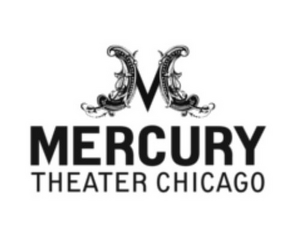Mercury Theater Chicago Will Close Permanently

Executive Director, L. Walter Stearns and partner, Business
Manager Eugene Dizon announced today the permanent closure of Mercury Theater Chicago after ten years and 25 productions, due to the loss of revenue following the COVID-19 shutdown. Most recently, Mercury's productions of Shear Madness and Priscilla Queen of the Desert were forced to close prematurely in March 2020 due to the Coronavirus pandemic. The theater has maintained an online presence over the past 16 weeks, with video content featuring past performers, the cast of Priscilla Queen of the Desert, and more. Due to the uncertain future in the performing arts and beyond caused by the pandemic, and the incredible financial hardship that has come as a result, the theater will be closing its doors permanently at the end of June.
"A theater is more than bricks and mortar; it is the people, the artists and the audience who call it home," reports Executive Director L. Walter Stearns, "until people are safe, there is no theater."
Since re-opening in 2011, Mercury Theater Chicago has produced 25 plays and musicals including 4 world-premieres and 4 productions which were extended to over 100 shows. In its tenure, the Mercury has employed 975 actors, musicians, designers, and arts administrators, and entertained nearly 400,000 audience members. The theater has raised and donated $100K to Season of Concern, the charity that provides emergency care to Chicago artists, and has produced benefits for cancer, ALS, and AIDS charities, in addition to other theater companies. The theater has hosted memorial services, weddings, and surprise engagements, and has given a home to community meetings, rehearsals, and photo shoots.
"We cannot plan for an imaginary future," said Eugene Dizon, Business Manager, "Closing is painful but necessary."
Mercury Theater Chicago was known for its bright friendly staff, comfortable surroundings, and first-rate productions. Notable shows include the world premiere of The Man Who Murdered Sherlock Holmes, and the long running hits Avenue Q, Spamalot, and Little Shop of Horrors. Producers Walter Stearns and Eugene Dizon were honored with the Larry Sloan Advocate award for their charitable work for Season of Concern as well as many Jeff-Award nominations and prizes for their theatrical achievements.
The beautifully renovated Mercury Theater Chicago stands in the heart of the Southport Corridor at 3745 North Southport Avenue, within a sophisticated neighborhood of restaurants and boutiques just steps from Wrigley Field. Over the years, Mercury Theater Chicago has been enhanced with a new limestone façade, modern restroom facilities, a built-out restaurant (which is permanently closed as
well), state of the art lighting, and sound systems. In 2018 Mercury unveiled its largest capital improvement, the Venus Cabaret Theater, an adjoining space offering entertainment with 'bread and circuses.'
The building that houses the Mercury opened in 1912 as a silent film nickelodeon called the Blaine Theater, named after former Senator and Secretary of State James G. Blaine. Around 1928 the popularity of "talkies" was on the rise, and the Blaine had become obsolete, so the much larger movie palace, the New Blaine Theater was built, which was shortly after named the Music Box Theater, still in operation today a few doors down from the Mercury. For most of the 20th century the original Blaine building served many retail purposes, including its operation as a carpet cleaning facility, using the rake of the seating area to lay rugs out and drain the water off. In 1994, veteran Chicago theater producer Michael Cullen organized the purchase and renovation of the building, re-dubbing it the Mercury Theater after Orson Welles' famous troupe of War of the Worlds fame.
Though little of the Blaine still exists, you can see hints of what used to be inside, including decorative plaster pilaster busts flanking the house. The intimate theater now boasts warm exposed brick walls and 292 seats that were recovered and refurbished from a 1933 era Boston movie house.
This four city-lot facility will now go dark until its next incarnation is determined.
Comments

Videos

